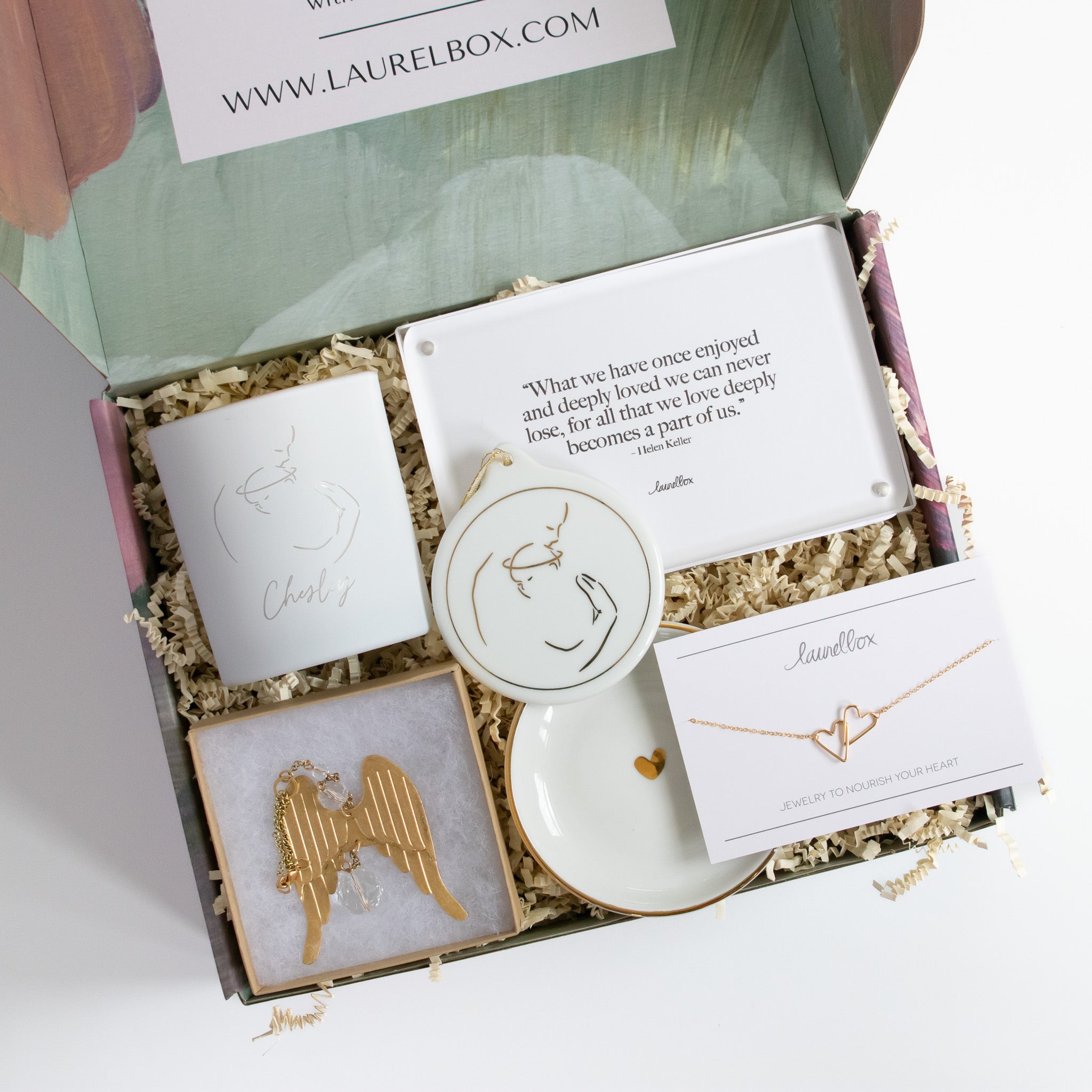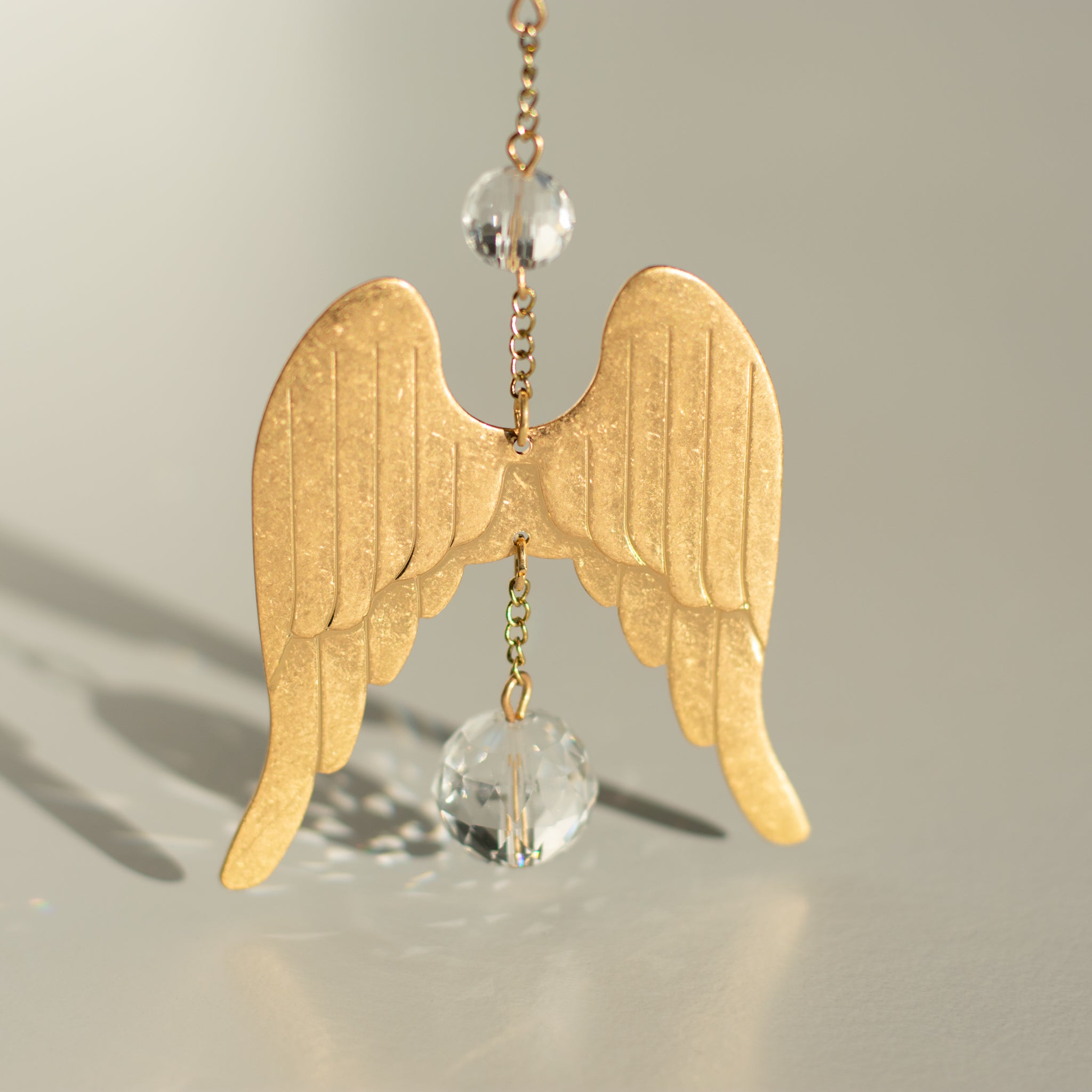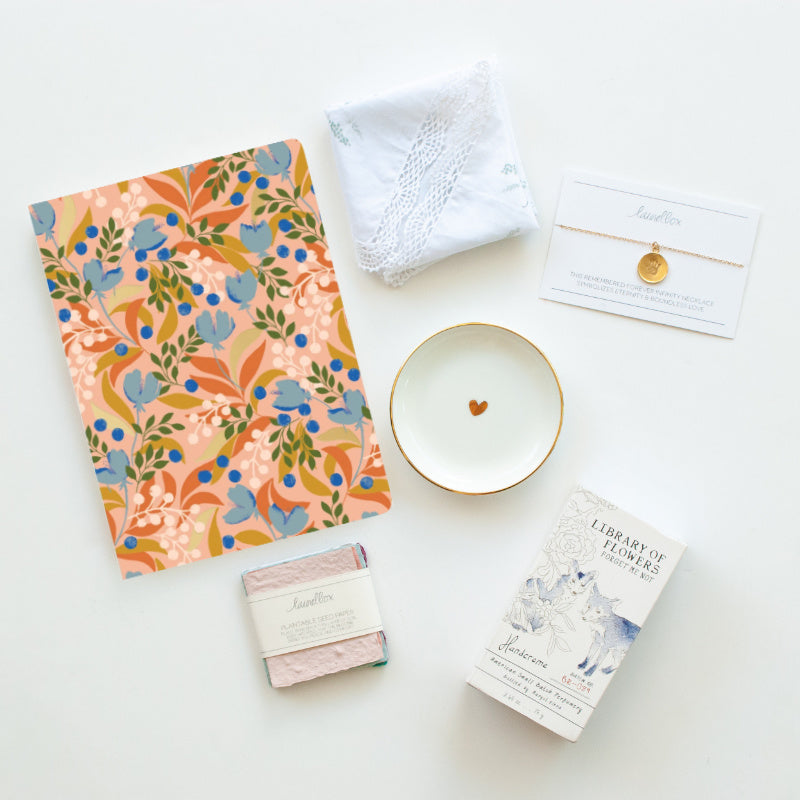
How to Stop Pushing Away Loved Ones After a Death in the Family
When you’ve had a death in your family or lost a close friend, it can be hard to know how to handle your grief. One way people tend to do this is by pushing people away. While everyone grieves differently, and you should not be ashamed to need alone time, it’s probably best not to push away family members completely when you’re grieving.
Take Time to Acknowledge Your Feelings
Let’s just start by admitting that grief is really hard and unpredictable. After a devastating loss, people can act in ways they normally wouldn’t. A generally quiet, reserved person could lash out with shouts of anger. Someone who is usually the life of the party might begin isolating themselves and avoid large gatherings. If you are currently walking through loss, it’s important to acknowledge your feelings - whatever those feelings might be. Many times, we push our emotions down thinking they’ll go away on their own. Spoiler alert, they won’t. It reminds me of an older movie called “French Kiss” with the adorable Meg Ryan and Kevin Kline. In the scene, they are discussing Kline’s broken relationship with his brother. Ryan tells him if he doesn’t confront it he’ll “fester and rot” inside. “Fester fester fester, rot rot rot,” she tells him. That’s true for all of us.
Take some time to sit down and journal. Write out all of the emotions you are experiencing. You may realize that when you snapped at that friend who offered to take you shopping for a new black dress for the upcoming funeral, you weren’t actually mad at your friend but instead mad you had to shop for a funeral dress to begin with. A few moments alone could shed light on why you are avoiding the invitations to go out to eat or see a movie to “get your mind off” everything. You may realize you feel guilty for enjoying yourself (even though your loved one would want you to.)
It can also be helpful to meditate or pray. If you are constantly talking, but never still enough to listen, you could be missing something. After we unexpectedly lost our second son Cooper just a few days shy of full term, I remember the afternoons were hardest for me. Our then-two-year-old was napping and the house was completely silent. It should have been filled with baby cries and noises but instead it felt like the silence shouted back at me. It was only after I realized why I hated those afternoons, that I found a way to process those emotions and work through them.
Journaling and “quiet” time to process the loss can be very important. Here, my calendar reminds me our son would have turned 3 on March 18, 2019.
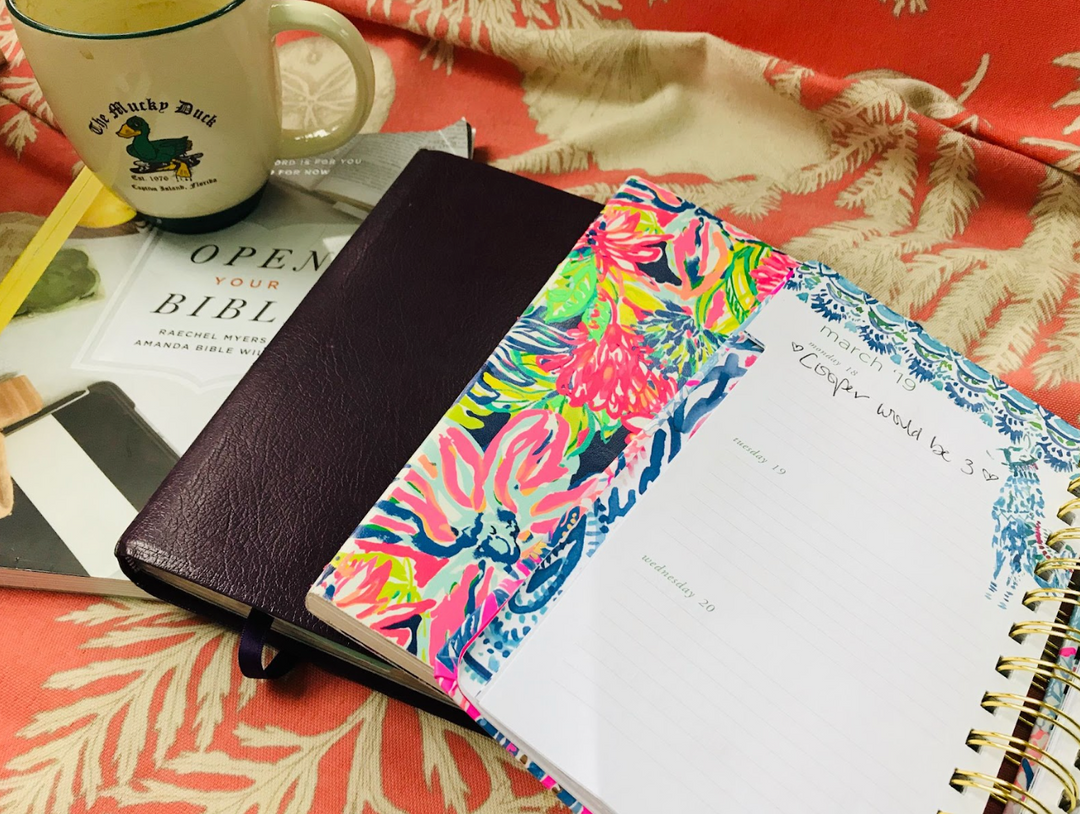
Boundary Setting
Just like in business, communication is key. So often we assume our family and friends know exactly how we are feeling and expect too much from them. Remember, you probably don’t even understand the complex emotions you are working through, so how is your family supposed to? Don’t be afraid to tell them you are having a hard day and that’s why you got mad about being late to school drop off. Let them know you are feeling overwhelmed with the thought of attending an upcoming party so soon after your loss. If they know that, maybe you can work together to find a good solution. It could make sense for you to find an alternate time to hang out with the guest of honor without so many people around.
It’s also important to be firm with boundaries. If you have a family member who veers toward the pushy side or their “advice” is the opposite of helpful, find a way to delicately change the subject or let them know you are grateful for their concern but now isn’t the best time for advice. This even applies to spouses! When my husband and I were walking through a difficult season, I remember having to tell him that I didn’t need him to solve the problem, I just needed him to hug me and let me cry. Don’t feel bad having boundaries, but also show love and compassion to family members. Remember, they (most likely!) mean well and are really trying to help. A lot of Americans don’t understand grief or want to dwell in that space because it makes them feel uncomfortable. So the next time Cousin Susie says something to the effect of “It’s been a month. Do you really think you should still be crying so much?” take a deep breath and respond with something transparent like “I don’t know. I’ve never done this before. But I know you hate to see me so upset. Let’s get together another time.”
Talk to a Therapist
We’ve probably all tried our share of DIY home projects big or small. Hanging some pictures on the wall? That’s probably doable with your own skill set. Knocking down a wall or rewiring some lighting? Probably best to call a professional. Same goes for our mental health!
Some experiences you might be able to work through on your own or within your family/friend circle. But “big ticket” items like devastating loss? It could be helpful to have an impartial outside party to discuss the situation and your emotions. It feels like our society is finally normalizing counseling and therapy which, in my opinion, is a great thing.
A trained or licensed professional can help you walk through grief and learn ways to cope in a healthy way. This not only benefits you, but this can also help you be more present and understanding with family members and friends. I have a friend who recently experienced a traumatic event and subsequent loss. After years of pushing back against counseling, they finally decided to give it a try and speak with someone. At first they were hesitant and skeptical, but after a few weeks, they actually looked forward to the sessions and could see a difference in how they responded to stressful situations. They even noticed a change in behavior to their family. Depending on your health insurance coverage, you could find a provider through your insurance website or reach out to a local church or place of worship (even if you aren’t a member there) and they might have grief counselors they could recommend.
Put Yourself in Their Shoes
As the old adage goes, “Before you judge a man, walk a mile in his shoes.” Once you’ve acknowledged your feelings and how the loss is impacting you, take a moment to inventory how the loss is affecting your friends and family.
Did they know the person and are grieving too? During the weeks after a heavy loss, you can unintentionally fall in the “one upping” trap. Compare your closeness with the deceased to others. Remember, grief isn’t a competition. If it was your best friend who passed away, your other friends are still allowed to grieve too. They lost a friend also. Make time for them to share their grief with you, when you’re ready.
This can also be challenging when it comes to miscarriage. So often, fathers who experience miscarriage don’t grieve at the level the mother does. A lot of this has to do with the fact that we, as moms, sometimes feel that connection to the child the moment we learn we’re pregnant. Even with an earlier miscarriage before the kicks and wiggles can be felt, moms can feel very in tune with the baby. If you miscarried and are upset your partner doesn’t seem as sad as you, give them grace and know it’s okay for each of you to process the loss differently.
Couples deal with infant child loss and miscarriage differently. Make sure to create space for the mother and father to grieve in their own way.
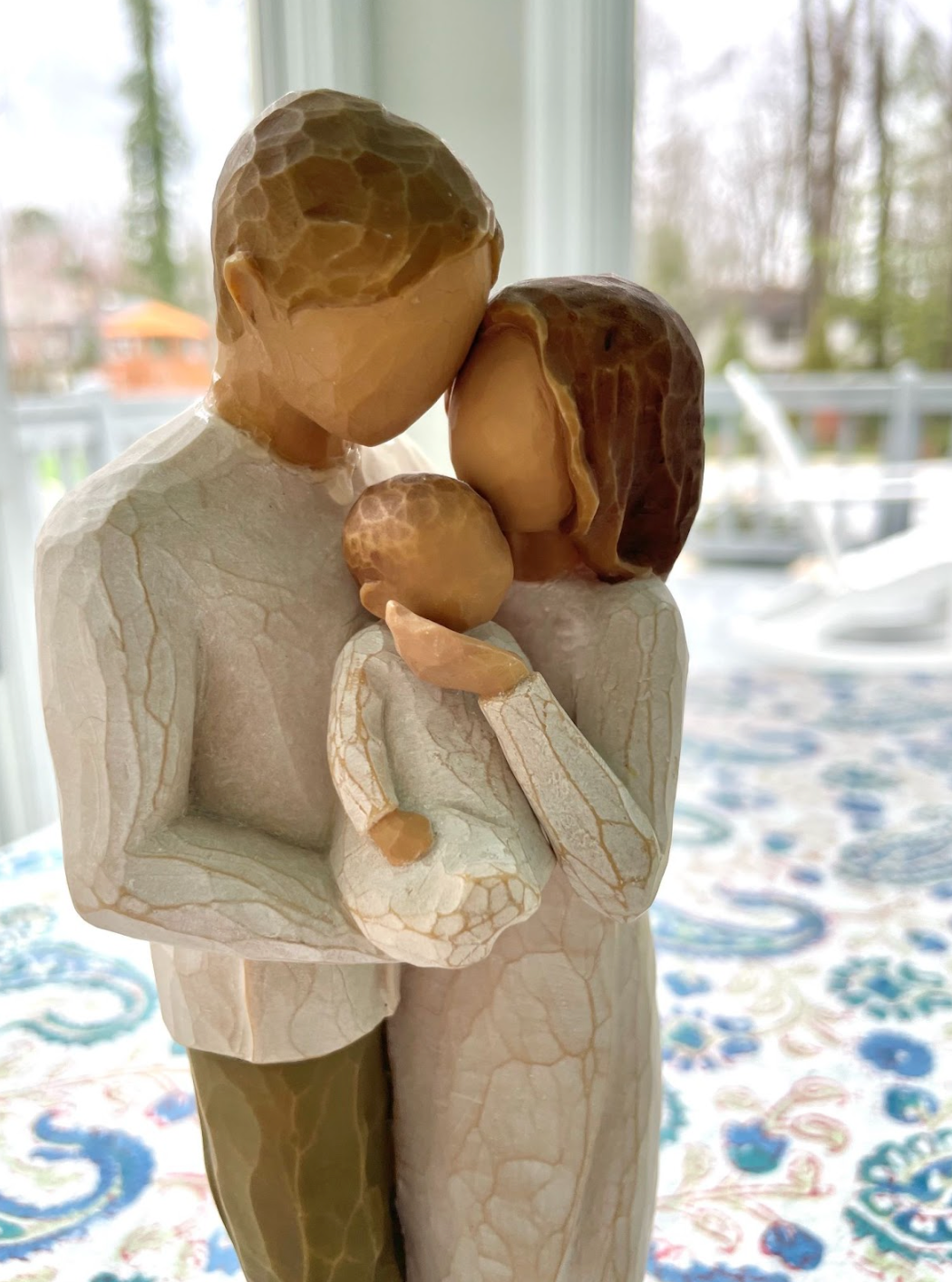
Get Struggling Family Members a Gift
Thoughtful gifts are always appreciated. If you are reading this as a friend or family member of someone who experienced a devastating loss, remembrance gifts are a wonderful way to show you care. Consider something like a custom memorial candle, a custom butterfly garden seed set or a beautiful piece of remembrance jewelry. Don’t overlook the gift of time, either. Spending a few hours with your friend or loved one listening to them talk about the loss or even just sitting in silence is a special gift in and of itself. If you are reading this as the person grieving and you feel like you’ve pushed a loved one away or been a hard friend to love in this season, consider giving a thank you gift. Acknowledging that you’ve been unpredictable and moody and offering a goodwill gift can go a long way to healing for all of you.

Lanna Britt
Lanna Britt was a national news producer in Washington DC for nearly a decade covering politics, breaking news and current events. She now lives with her husband and three children in Richmond VA. She has two sweet babies she’ll meet again in heaven.




